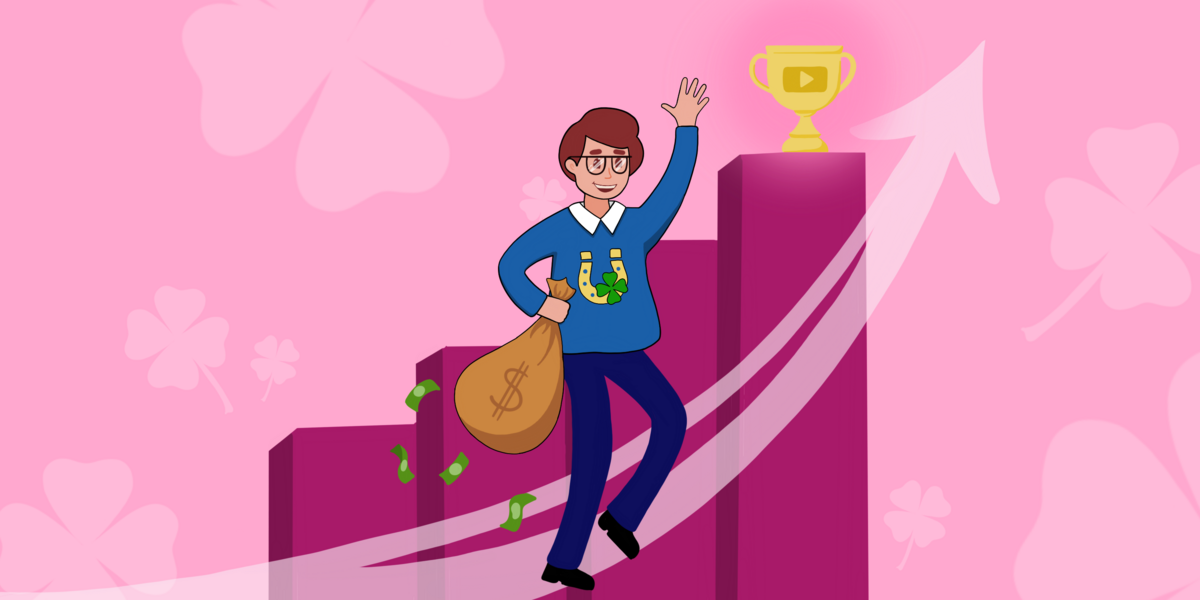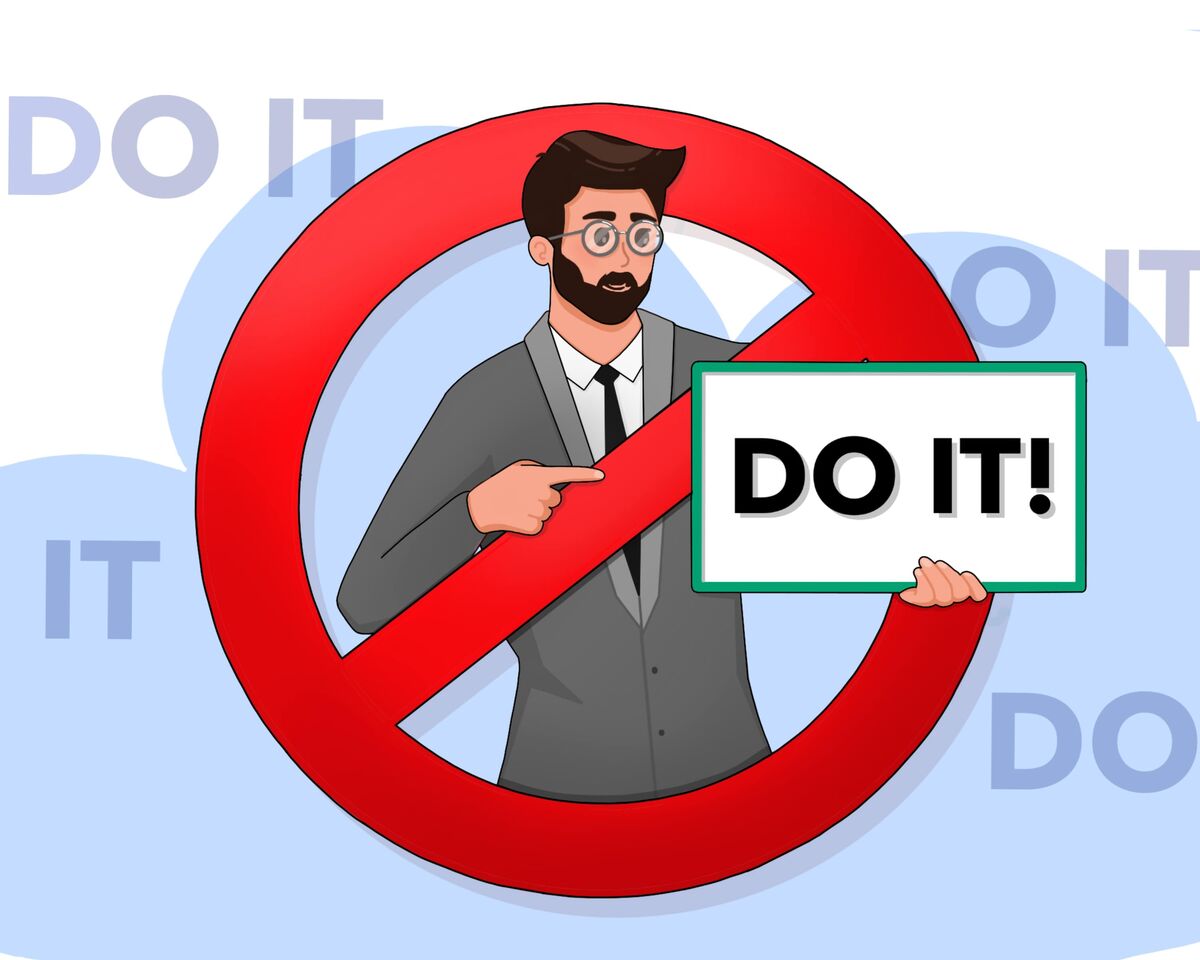How to be Successful on Youtube. Luck or Hard Work?

Let’s discuss a never-ending debate: on one side you have those who believe YouTube success is random, with no discernible method for achieving fame. Then there are those who argue that you must focus on improving content, optimization, and video promotion in order to rise to the top.
Let's finally determine whether success on YouTube is luck or indeed hard work?
Breaking Stereotypes About Success on YouTube
A decent number of YouTubers are convinced that striving for success is futile, as fate and a bit of YouTube magic are the ultimate determinants. Sadly, these individuals spread confusion among other creators through their comments.
While experienced YouTube veterans clearly understand these are baseless assumptions, newcomers, who make up the majority, easily succumb to these negative influences. This is because believing in baseless hyperbole is far less demanding than watching a couple of hundred useful videos.
Let's delve into this and attempt to debunk the misconception that YouTube success is random. By doing so, we hope to help newcomers understand that YouTube success, for the most part, is simply the result of quality work.
-
Algorithm decides which channel to promote
Let's start by acknowledging that there isn't just one algorithm on YouTube - there are many, each serving its own purpose. It seems that some people think there is one holy algorithm spinning a wheel with the names of YouTubers or the titles of their videos, and whoever it lands on becomes successful? As ridiculous as that sounds, some people believe it.
However, the previous perception contradicts YouTube's current policies. In reality, the video hosting platform is only interested in what generates revenue, and revenue comes from satisfied viewers who watch the videos. This means:
Youtube will promote what people watch.
Just 5 years ago, one could have said that randomness and a magical algorithm were the key factors for success, as the focus was on the number of views and subscribers on a channel. Thus, viewer satisfaction wasn't really a main concern.
YouTube needed time to realize that this type of ranking process wouldn't work. It's no longer beneficial for YouTube if viewers leave the platform; it's in their best interest to keep users engaged on the site for as long as possible. To achieve this, they need to provide viewers with what they want.
Returning to the idea of a magical algorithm.
Algorithms don't decide where a viewer will click or what they'll end up watching. They can only make predictions based on compiling and assessing data. All other outcomes of clicks on videos and the actual views are up to the viewers. However, as a creator, you have the power to influence a viewer's desire to click and watch.
Algorithms aren't to blame if you've created uninteresting videos, used poor thumbnails, and viewers ultimately didn't engage with your content. This is because you are solely responsible for the presentation of your own videos.
The algorithms only read what you tell them about your videos in the titles, descriptions, tags, subtitles.
They gather this information, compare it with what they have previously shown to users with similar interests and queries, and attempt to "suggest" your video to certain users.
Predicting all the details for a successful video promotion is extremely challenging. You need to select a relevant topic, align with user queries, timing, opt for a trending style of presentation, and consider other crucial details. But once again, the question arises: Is this luck or rather meticulous work? Answer this honestly to yourself.
- YouTube will show your video to those it determines are interested based on the data it has accumulated.
Let’s continue on the topic of how YouTube presents your videos to viewers. YouTube will display your videos to those who will watch them, to those who will find them interesting.
Another question arises: based on what criteria does YouTube do this? The answer has already been mentioned above - it's based on your own metadata.
However, the platform promotes well-known YouTubers, doesn't it? Yes, it does. And from YouTube's perspective, this is logical. Undoubtedly, it's more advantageous for them to promote videos from those who have already established themselves on the platform, who bring them views, revenue, and satisfied viewers. But don't forget the main point:
YouTube benefits from having more successful creators.
Simple mathematics: more creators = more views = more ads. Keeping this in mind, your main goal should be to demonstrate to YouTube that people are watching your content and are satisfied.
Many creators undermine their own promotion not because of poor optimization or presentation – although, undoubtedly, that's a common issue – but because they try to capture the entire YouTube audience at once. And this means only one thing: you don't really know who will actually watch you. And if you don't know who will watch you, then YouTube certainly doesn't either. It merely reads the information you provide.
Now, imagine that you've made a video about drawing a little cat. And you think, well, anyone from infants to grannies might watch it, because… who wouldn't want to draw a cat?
How does this look to YouTube? The platform "looks" at your presentation and assumes it's for children, so it shows it to kids. But, let's say, kids don't like it. YouTube scratches its magical head and starts showing the video to retirees, who aren't interested in drawing cats; they want to tend to their garden. So, YouTube throws up its hands and realizes it's a dead end, assuming nobody wants to watch your video. And it stops promoting your content.
Now, let's change the scenario. The same cat-drawing video, but this time you're targeting teenagers learning to sketch with pencils. You've informed YouTube who it should be shown to, and it offers your video to all teenagers interested in drawing, animals, pencils, etc. This results in your target audience watching your video. YouTube scratches its magical head again and decides the video is perfect, so it shows it to others who also enjoy sketching with pencils.
That's the "magic" of YouTube – your video's focus is what matters.
There is no set standard rule for YouTube creation, which means all success is random.
There are indeed no concrete standards for content creation, but not because randomness decides success. It's because different niches and channels with varying themes don't adhere to uniform guidelines to please their audiences.
Although, there is one standard that YouTube loudly and openly proclaims - your channel becomes ready for monetization and our partner once it reaches 1000 subscribers and 4000 watch hours. Isn't that the kind of standard you desire?
If you delve into these requirements for joining the Partner Program, you can easily discern YouTube's priorities. Subscribers need to be four times fewer than watch hours, which means that
Quality views will always be more important than a large audience.
Furthermore, let's not forget about the analytics in YouTube's Creator Studio. It's all composed of numbers, graphs, and YouTube constantly shows you whether your channel is growing or not. If you think about it, its purpose is to indicate to you whether you're progressing. Ask yourself, are you better than you were yesterday, a week ago, or a year ago?
YouTube doesn't provide exact numbers to prevent you from confining yourself to limitations. However, even in doing so, if you carefully read YouTube's Help resources, it thoroughly explains the significance of various figures. Most importantly, it instructs you on how to perceive and analyze these metrics.
Useful references for you:
- How to measure impressions and CTR for video icons
- YouTube Analytics section “Audience retention key data”
You can dig into this data forever. The only question is what do you want to understand from your data - how to grow, or how to figure out the randomness?
- Creators can't control if videos get featured, it's just luck
Let’s check out an example: say, you decide to learn how to play tennis. If you played five minutes, you might suck, after twenty-five, you get a bit better, and after a month of regular training, you finally reach a level of quality. Agree?
Same with recommendations.
If you take time to study how YouTube’s platform works, which videos in the niche are popular and in demand, which words and queries are currently in the top, then getting into the recommended videos becomes easier.
It's not always possible to hit all the trends and current events. Sometimes out of three created videos, only two might become successful or even just one. And this isn't about luck, but about having three attempts instead of one. If you further analyze all the mistakes you made in the other two videos, the next time the recommendations might include not just two but all three videos.
If you once again refer to the Help resources and all the information provided by official sources, it immediately becomes clear how this section operates and what targets need to be met to end up in recommendations.
Article "How to make recommendations and search results more accurate"
Recommendations are made individually for each viewer based on multiple signals. Including browsing and search history (if available), subscriptions, as well as the country of residence and time of day.
You can get into recommendations if you understand who your viewer is, what they want and what they are looking for.
Among other factors, the inclusion of a video in the recommendations section is also influenced by whether users who were previously recommended the video watched it to the end. This once again emphasizes the importance of viewer retention – a truly significant parameter.
Once you've put in the effort to enhance your content, you might get lucky and end up in the recommendations. But is the outcome of working on your channel and content truly a matter of luck?
- Just make videos and upload them more often - someday you will be lucky
Let's start with the fact that this type of claim undermines the efforts of those who work hard on their content. This type of thinking completely empowers those who are willing to post low-quality videos 24/7.
For the first category of creators: all your efforts are not in vain, because:
Luck on YouTube lies in the work on the content and the channel, and not at all on randomness and luck.
Don't underestimate your efforts, because your effort is what truly matters.
And for the second category of creators: you can't force anyone to watch low-quality videos. Even if YouTube recommends them to everyone in the world. However, if a video is of poor quality and viewers skip and don't watch it, it will quickly drop from the top search results and recommendations. So, there's a low likelihood that it will be given more impressions on the platform.
If you have a choice between creating videos more frequently or creating better quality content, choose the latter. From a viewer's perspective, high-quality content is far more important than frequency. We're willing to wait months for our favorite creators because we know that when they return, they'll bring us something of great quality.
Yes, frequency does influence how quickly your channel and content gain traction, but we circle back to the point above – if quality suffers, quantity loses its significance.
Let's summarize what we've learned in this article.
- Only you influence how impressive your videos look and their presentation.
- Only you influence how much viewers will like your videos. YouTube is powerless in this regard.
- Only you decide which category of viewers YouTube will place your videos in.
- To some extent, you control how fast you'll grow.
- YouTube is a system. That's why there are lessons for beginners and videos about optimization.
- Those who apply the advice given by YouTube and marketing experts bypass luck and become successful. Because there's a system, and they stop relying on algorithms and luck. They consciously pursue their goals.
- If someone says you got lucky, don't listen; instead, analyze why you got lucky.
- Success on YouTube is not luck. Our stance on this is clear. It partly helps to analyze better, not to believe in randomness, and to seek logic in everything.
Psychologists have noticed that fortunate people often say "yes" more than "no". They are bold and unafraid to experiment. Even if you view everything through the lens of luck, those who achieve success don't stay still – they're doing something, at the very least. Do you still believe in luck on YouTube? Or have you come to the conclusion that success on YouTube is indeed the result of diligent work




